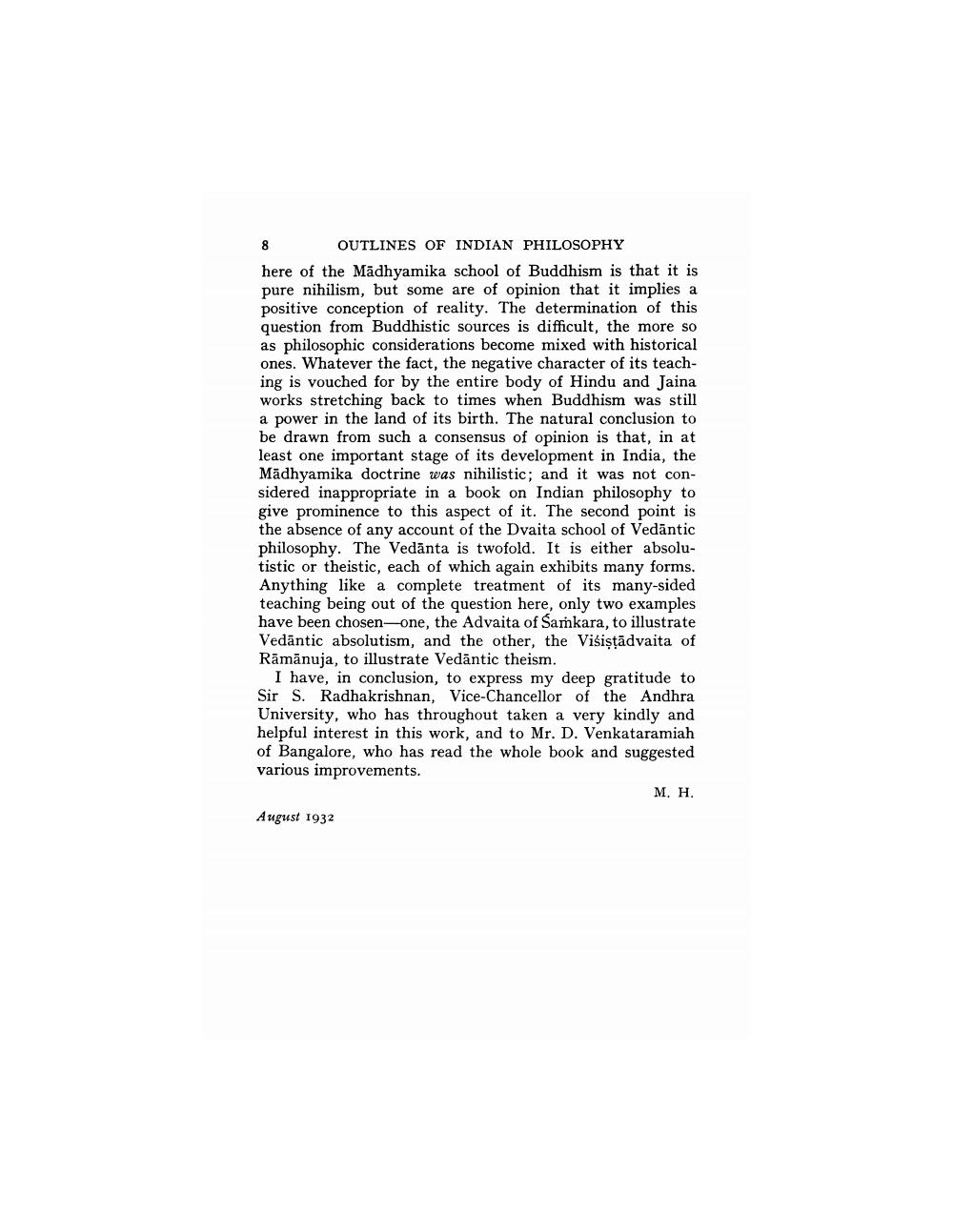________________
OUTLINES OF INDIAN PHILOSOPHY here of the Mädhvamika school of Buddhism is that it is pure nihilism, but some are of opinion that it implies a positive conception of reality. The determination of this question from Buddhistic sources is difficult, the more so as philosophic considerations become mixed with historical ones. Whatever the fact, the negative character of its teaching is vouched for by the entire body of Hindu and Jaina works stretching back to times when Buddhism was still a power in the land of its birth. The natural conclusion to be drawn from such a consensus of opinion is that, in at least one important stage of its development in India, the Madhyamika doctrine was nihilistic; and it was not considered inappropriate in a book on Indian philosophy to give prominence to this aspect of it. The second point is the absence of any account of the Dvaita school of Vedāntic philosophy. The Vedānta is twofold. It is either absolutistic or theistic, each of which again exhibits many forms. Anything like a complete treatment of its many-sided teaching being out of the question here, only two examples have been chosen-one, the Advaita of Samkara, to illustrate Vedāntic absolutism, and the other, the Višistādvaita of Rāmānuja, to illustrate Vedāntic theism.
I have, in conclusion, to express my deep gratitude to Sir S. Radhakrishnan, Vice-Chancellor of the Andhra University, who has throughout taken a very kindly and helpful interest in this work, and to Mr. D. Venkataramiah of Bangalore, who has read the whole book and suggested various improvements.
M. H. August 1932




